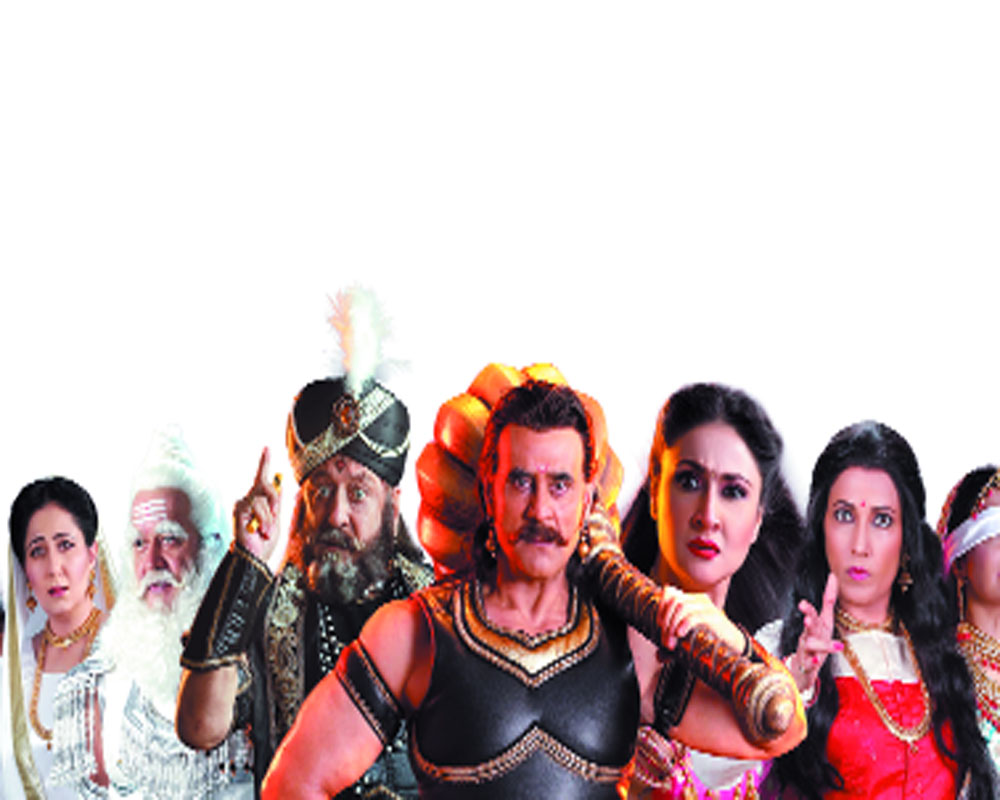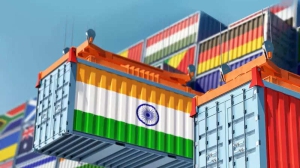Actor-director Puneet Issar brings to Delhi a magnum opus — Mahabharat — a play from the point of view of Duryodhana and Karan. SHALINI SAKSENA catches up with the starcast to bring you a lowdown
We have all grown up listening to Mahabharat or at least watching the TV series — all from the Pandavas perceptive. Now, there is a fresh look at the epic. Actor-turned director Puneet Issar brings to Delhi his debut play Mahabharat, told from the point of view of Duryodhan and Karan.
Issar tells you that the idea to take the epic to theatre took root around four years ago. Back then, Issar used to play Ravan in Raavan Ki Ramayan and the audience would not leave till he delivered a dialogue from BR Chopra’s Ramayan in which he had played Duryodhan. That got him thinking and he decided to tell the story of this epic from Duryodhan and Karan’s perspective.
“I realised that people still remembered the character and his dialogues even though 30 years have passed. I wanted to tell the story again, this time through a play spanning two-hours and 45 minutes. The effort has been to do things differently from what BR Chopra did. We didn’t want it to be the same or even sound similar. Of course, the story has not been tampered with. What is different is the perspective,†Issar says.
To put out such an epic came with epic challenges. It took him over a year to get the pros right before it was finally written in poetry and verse format. It was written and rewritten several times. “We wanted to give each character his due but it is a play and we had to limit ourselves. Hence, my son Siddanth and I took our time to get the script right. We hope that the audience like the end result,†Issar says.
Then there was the budget issue. Though it is not on a large-scale like Mughal-E-Azam or Aladdin, but the production team has left no stone unturned to put out the magnum opus on stage. “While we may not have access to the kind of budget that Mughal-E-Azam had, we have done our best to ensure that the viewers are not disappointed. The sets and the costumes are brilliant,†Issar says.
While most theatres put out a production on three-four months, it has taken actor-director nine months. “It took us two months to just our lines, Then came 9-10 hours of gruelling rehearsals. I am happy with the end result given the fact that we have consciously tried to be different from the original. Many had suggested that for sutradhaar’s voice I approach Amitabh Bachchan or even Ameen Sayani. We didn’t want to draw comparisons and instead created a character — Dharti Ma played by Meghna Malik. She is the narrator here as was samay back in 1989. She will come from time to time and tell the story as witnessed by her,†Issar says
There are some familiar faces from the original epic like Gufi Paintal to play Shakuni mama and Surendra Pal to play Drona. “We also wanted to cast people who could give time to this project. Hence, we chose Urvashi Dholakia to play Draupadi, Rahul Bhuchar playing the role of Karan and Yashodhan Rana playing the role of Krishna,†Issar says, who once again plays Duryodhan here.
Not as easy task for the actor since he had to put on weight for Raavan’s role and here had to lose around 25-30 kg and yet look like a warrior, be fit and look young even though 30 years have passed since he played the character. “I not only had to shed the extra kgs that I had put on for Raavan’s role, but I also had to go back to looking like I did in 1989. A tall order but hopefully I have managed to do so,†Issar says.
For Gufi Paintal, the lure was that Shakuni mama as a character has been near to his heart for 30 years. “When Puneet, a good friend, asked me to be part of the play I felt honoured to essay the role once again. Also, the projection of this epic is different and that is exciting for me,†Paintal says and tells you that while the character remains the same, the change is in how the role has been dealt with.
“It is a play and each character has to be given importance. It is not as if you will see all of us on the stage all the time,†Paintal and opines that one can’t take risks with a story that has been etched in our psyche. For Paintal the positive side to Shakuni is that he managed to ruin the kingdom and that what he did was right when it came to his sister.
Dholakia, who has been in the industry for more than 30 years, tells you that there were no challenges or difficulties when it came to playing Draupadi. But her first reaction when she was offered this play was to say ‘let me think about it’ since she was not theatre-driven.
“While there were no difficulties, the challenge was to adjust to a different medium. There is no scope of a retake on the stage; it is a live performance!†Dholakia says and feels that every coin has two sides. It is good to know the others’ side too.
“There’s a book that looks at Mahabharat from Draupadi’s viewpoint. So, to each his own. Everybody should have a chance to be viewed. It is not about who was right or wrong, just a different take. We all know the story of Mahabharat. It is not as if the story is tampered with,†Dholakia says and tells you that it is not easy nor fair to pick one character who stands out since each has importance in the epic.
The play debuts in Delhi on November 17, 2018.


























